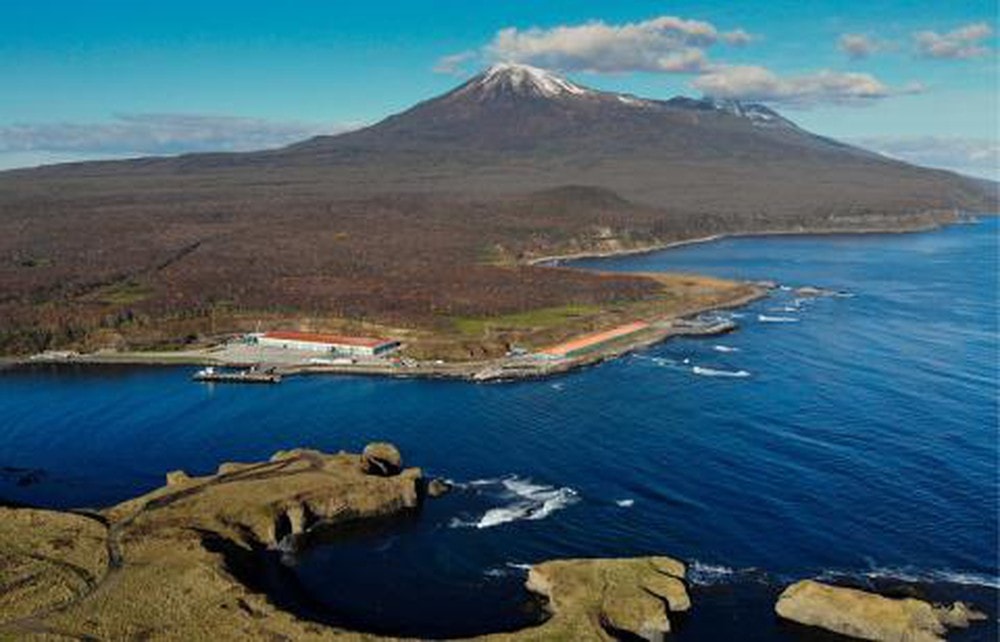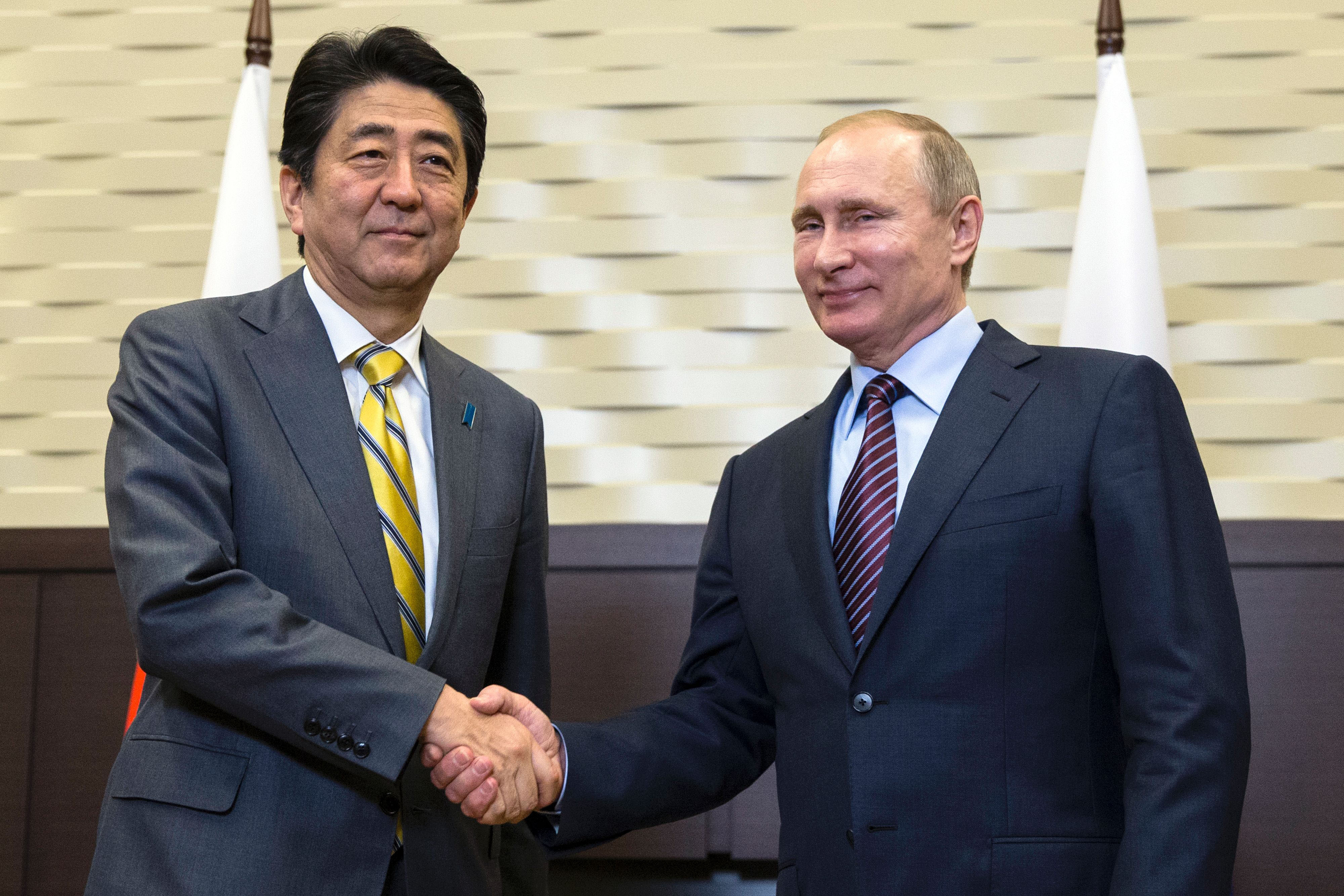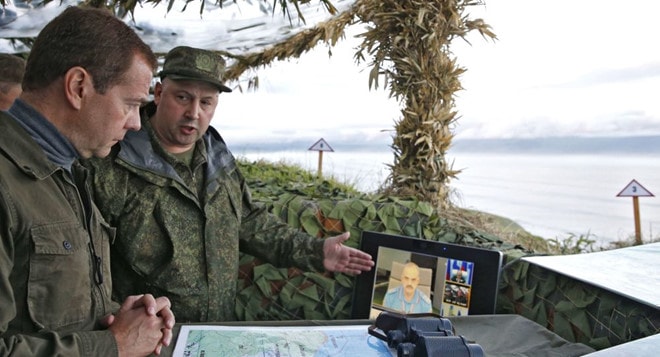What is the way for a Russia-Japan peace treaty?
(Baonghean.vn) - For Russia, sovereignty over the Kuril Islands is inviolable. However, Moscow is always ready to seek a suitable compromise that benefits both Russia and Japan.
Russia's willingness to transfer two islands in the Kuril Islands back to Japan has caused a stir in the media and experts in recent days.
The reason is that Russian President Vladimir Putin and Japanese Prime Minister Shinzo Abe agreed to speed up Russia-Japan negotiations based on the 1956 Joint Declaration.
So what did the 1956 Joint Declaration actually mean, and did it imply that Moscow was willing to cede the islands to Tokyo?
 |
| A corner of the Kuril Islands. Photo: TASS |
Kuril Islands
Since World War II, Russia and Japan have not been able to sign a peace treaty. The biggest obstacle is the territorial dispute in the southern Kuril Islands (which Japan calls the "Northern Territories"). The disputed islands include Iturup, Kunashir, Shikotan and several uninhabited islands located on the slopes of the Habomai Mountains. Iturup and Kunashir islands account for 93% of the southern Kuril Islands, while Shikotan and Habomai account for the remaining 7%.
Historically, who did these islands belong to?
In the 19th century, Tsarist Russia recognized Japanese sovereignty over some of the Kuril Islands, and after the Russo-Japanese War (1904–1905) this sovereignty was extended to Sakhalin, further south, above the 50th parallel.
However, after World War II, Sakhalin and all the Kuril Islands were annexed by the Soviet Union. Under the terms of the Potsdam Declaration of July 26, 1945, Japanese sovereignty was limited to the islands of Honshu, Kyushu, Shikoku and Hokkaido, as well as other smaller islands of the Kuril Islands.
Why can't Russia and Japan sign a peace treaty yet?
Because the text of the agreement did not include provisions regarding ownership of the Kuril Islands. In September 1951, at an international conference held in San Francisco, Japanese leaders signed a peace treaty with 48 countries participating in the anti-fascist alliance, which included a provision renouncing "all rights, legal grounds and claims to the Kuril Islands".
However, this clause did not specify any benefits for Japan in refusing these territories. Therefore, the Soviet delegation at that time did not sign and considered it illegal.
 |
| Japanese Prime Minister Shinzo Abe and Russian President Vladimir Putin. Photo: Japan Times |
What is a joint statement?
This is a document signed by Russia and Japan in 1956 on ending the state of war between the two countries and restoring diplomatic and consular relations.
In Chapter 9 of this Joint Declaration, the Soviet Government agreed to transfer the Shikotan and Habomai Islands to Japan, on condition that the transfer of actual control to Japan would take place only after the conclusion of a peace treaty. This Declaration was ratified by Russia and Japan on December 8, 1956.
Why is the territorial dispute not over yet?
In 1960, Japan and the United States signed an agreement on the presence of the US military in the country. This document allowed the US to deploy its armed forces and military bases in Japan.
This event outraged the Soviet leadership at that time. The Soviet Union immediately abolished Japan's obligations on the Shikotan and Habomai islands.
In a memorandum dated January 27, 1960, the Soviet Union emphasized that the two islands would only be handed over to Japan when all foreign military forces withdrew from its territory.
Will the islands be returned if Moscow and Tokyo decide to return to the 1956 Declaration?
This will never happen! The Russian Foreign Ministry has repeatedly stated that Russia's sovereignty over the Kuril Islands is based on a valid international legal framework, which cannot be denied by anyone.
According to the press secretary of the Russian President, Mr. Dmitry Peskov, Moscow and Tokyo are looking for compromise that does not contradict the national interests of both sides.
However, returning to the format of the 1956 Joint Declaration in negotiating a peace treaty does not mean that Russia “automatically” transferred its territories to Japan.
 |
| Prime Minister Medvedev on a working trip to the Kuril Islands. Photo: Sputnik. |
Russia cannot ignore the alliance between Japan and other countries, first and foremost the United States. This issue will also be taken into account during the negotiations and a reasonable solution must be found.
According to President Putin, in this regard, negotiations on the basis of the Joint Statement “require serious study”.
Japan's perspective
According to the Asahi Shimbun, Prime Minister Shinzo Abe, in talks with President Putin, assured that if Russia transfers control of some islands to Japan, US military bases will not be located there.
In addition, to speed up finding a solution to the sovereignty dispute with Russia, the Japanese Foreign Ministry plans to hold consultations with Washington on the deployment of military facilities in the country.

